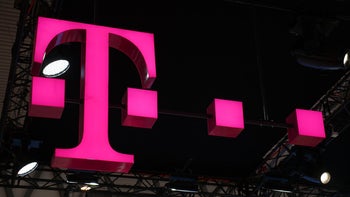T-Mobile reaches settlement with Mississippi; state now supports merger with Sprint

Any day now, we should hear that the FCC has voted to approve the $26.5 billion merger between T-Mobile and Sprint. And that would leave just one hurdle for the deal to clear, a lawsuit filed by the attorneys general of 17 states and the District of Columbia. The suit seeks to block the transaction from closing and a trial will start on December 9th. While T-Mobile and Sprint did engage in preliminary settlement talks with the plaintiffs, someone knowledgeable with the conversations said at the time that both sides were miles apart. But it appears that there now is hope that settlement talks could bring an end to the suit and allow the merger to close.
When the suit was originally filed back in June, the plaintiffs consisted of nine state attorneys general and the AG of Washington D.C. Since then, eight other states joined the legal action. But today, a tweet from Jim Hood, the Attorney General of the state of Mississippi (via Reuters) announced that the state is not only dropping out of the lawsuit, it is now siding in favor of the merger. That's because both T-Mobile and Sprint agreed to blanket at least 62% of the state's urban and rural populations with 5G signals (carrying download data speeds of 100Mbps or faster) within three years after the deal closes. Within six years after the deal closes, 92% of the general population of Mississippi and 88% of the rural population must be able to access 5G.
Promises made by the New T-Mobile get Mississippi to drop out of the suit and support the merger
The New T-Mobile, as the merged company could be called at first, also promised that for five years after the merger closes, it will offer those in the state a $15 per month plan with unlimited talk, text and 2GB of high-speed data. And for $25 per month, subscribers in the state can sign up for unlimited talk, text and 5GB of high-speed data. Attorney General Hood also said that the New T-Mobile promised to "decrease prices as supply increased" meaning that once Dish Network replaces Sprint as the nation's fourth-largest carrier, T-Mobile will cut prices.

If the merger with Sprint closes, T-Mobile will receive a treasure trove of mid-band spectrum to help it build out its 5G network
This settlement is reminiscent of the concessions that T-Mobile made with the FCC to get the regulatory agency's chairman, Ajit Pai, to support the deal. The New T-Mobile will cover 97% of the U.S. with low band 5G within three years after the deal closes, cover 75% of the country with mid-band 5G over the same time period, and keep plan prices at current levels for 36 months after the deal is completed.
"We are thrilled that @MississippiAGO Hood withdrew from the states' lawsuit after learning more about ALL the amazing benefits the New T-Mobile will deliver to US consumers!"-John Legere, CEO, T-Mobile
"The world around us is almost fully digital, but Mississippi is lagging behind with internet deserts across the state. My agreement with T-Mobile will help fill this gap."-Jim Hood, Attorney General, Mississippi
The latest extension of T-Mobile and Sprint's merger agreement expires on November 1st and at least a couple of Wall Street analysts are calling on T-Mobile to renegotiate the deal to wring some better terms out of Sprint. While T-Mobile is the fastest growing and most innovative of the four major wireless providers, Sprint is in the worst shape among the four. In addition, its corporate parent, SoftBank, no longer seems interested in what is going on at Sprint. In other words, Sprint needs this deal to survive; T-Mobile has other ways to obtain the mid-band spectrum it wants.
Yes, the settlement is a big deal for T-Mobile and Sprint because you never ever know what is going to happen during a trial. Both wireless providers will be working hard to get the 16 other states that are still part of the suit to settle. But for right now, it's one down and 16 states to go (plus the District of Columbia).










Things that are NOT allowed: